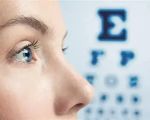- 1-Understanding-Focus-and-Eye-Coordination
- 2-Effective-Exercises-to-Enhance-Eye-Coordination
- 3-Strategies-to-Boost-Mental-Focus
- 4-Real-Life-Examples-of-Improved-Coordination
- 5-Professional-Support-for-Vision-and-Focus
1. Understanding Focus and Eye Coordination
Focus and eye coordination are essential cognitive and physical skills that play a critical role in daily activities, from reading and writing to sports and driving. Improving focus involves training the brain to maintain attention on specific tasks without distraction, while eye coordination refers to the ability of the eyes to work together smoothly to track and process visual information accurately.
When these two abilities work harmoniously, they enhance performance, reduce errors, and improve overall productivity. However, many people struggle with distractions or visual-motor inefficiencies that hinder their efficiency and confidence.
1.1 The Link Between Vision and Cognitive Performance
Research shows that visual processing significantly impacts cognitive functions like memory and decision-making. Eye coordination challenges may manifest as difficulty tracking moving objects or aligning visual focus, which in turn affects concentration.
Understanding this relationship is the first step toward targeted improvement, enabling individuals to adopt exercises and habits that support both visual and mental sharpness.
2. Effective Exercises to Enhance Eye Coordination
Improving eye coordination can be fun and practical through specific exercises designed to train eye muscles and the brain’s processing speed.
2.1 Tracking Exercises
One simple yet effective exercise involves following a moving object with your eyes without moving your head. For example, tracking a slowly moving pen or ball horizontally, vertically, and diagonally helps develop smooth pursuit eye movements.
2.2 Eye-Hand Coordination Drills
Activities like juggling, playing catch, or using apps designed for eye-hand coordination stimulate both visual and motor skills simultaneously. These exercises train the brain to process visual cues quickly and respond accurately.
2.3 Focusing Flexibility
Shifting focus between near and far objects strengthens the eye muscles responsible for accommodation. Practicing this by alternating gaze between a book and a distant object several times a day reduces eye strain and sharpens focus.
3. Strategies to Boost Mental Focus
Beyond eye exercises, improving mental focus requires lifestyle adjustments and mindful practices.
3.1 Mindfulness and Meditation
Regular mindfulness meditation trains the brain to resist distractions and enhance sustained attention. Even short daily sessions can yield significant benefits in focus and clarity.
3.2 Structured Work Sessions
Techniques like the Pomodoro method—working in focused bursts with scheduled breaks—help maintain high concentration levels without burnout.
3.3 Healthy Habits
Proper sleep, balanced nutrition, hydration, and limiting screen time also contribute to sharper focus and better eye health, supporting coordination indirectly.
4. Real-Life Examples of Improved Coordination
Consider the story of Alex, a collegiate tennis player, who struggled with tracking fast-moving balls. By incorporating eye-tracking drills and focus-enhancing mindfulness practices recommended by his coach, Alex noticed quicker reflexes and improved match performance within weeks.
Similarly, office workers facing digital eye strain found that integrating focusing flexibility exercises into their breaks reduced fatigue and increased productivity.
5. Professional Support for Vision and Focus
When natural improvement stalls, consulting specialists can provide tailored solutions. Eye care professionals can assess visual tracking, prescribe vision therapy, or recommend assistive tools to enhance eye coordination and focus.
For those seeking expert guidance and the latest products designed to improve vision and cognitive focus, Eye Docs offers reliable services and personalized recommendations to meet individual needs.
Mastering how to improve focus and eye coordination takes consistent practice and mindful care. By combining targeted exercises, lifestyle strategies, and professional support, anyone can enhance their visual-motor skills and mental clarity for better daily performance.








